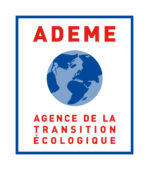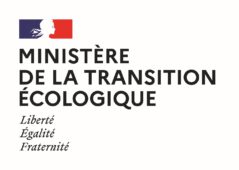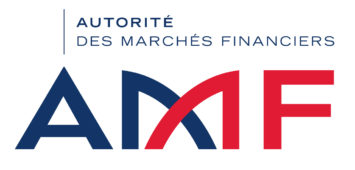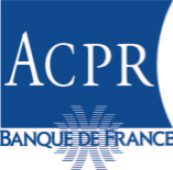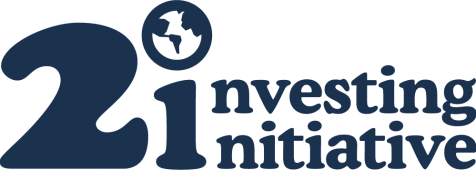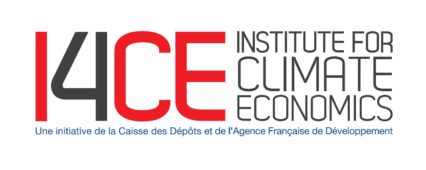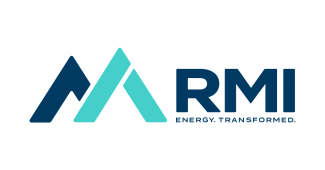Finance ClimAct, moving towards more sustainable financing
The Finance ClimAct project contributes to the implementation of France’s National Low Carbon Strategy and the European Union’s Sustainable Finance Action Plan.
It aims to develop new tools, methods and knowledge that will enable:
- Savers to integrate environmental objectives into their investment choices
- Financial institutions and their supervisors to integrate climate issues into their decision-making processes and align financial flows with energy and climate objectives
- Promote investment in energy efficiency and the low-carbon economy, as advocated by the National Low-Carbon Strategy and the European Green Deal.
-
 Discover the key deliverables of the LIFE Finance ClimAct project (2019-2025) Dernière mise à jour : 25 July 2025
Discover the key deliverables of the LIFE Finance ClimAct project (2019-2025) Dernière mise à jour : 25 July 2025The LIFE Finance ClimAct project, led by a consortium of public and private players, has produced a number of deliverables… Read more
-
 Events to comeCOP 28: SUSTAINABLE FINANCE EVENTS Dernière mise à jour : 27 November 2023
Events to comeCOP 28: SUSTAINABLE FINANCE EVENTS Dernière mise à jour : 27 November 2023As part of the LIFE Finance ClimAct project, ADEME and the Sustainable Finance Observatory will be organising two events at… Read more
-
 Events to come2DII CONFERENCE ON SUSTAINABLE FINANCE AND BIODIVERSITY: MAINSTREAMING FINANCE FOR BIODIVERSITY Dernière mise à jour : 10 October 2023
Events to come2DII CONFERENCE ON SUSTAINABLE FINANCE AND BIODIVERSITY: MAINSTREAMING FINANCE FOR BIODIVERSITY Dernière mise à jour : 10 October 2023The aim of this event is clear: to explore how sustainable finance can promote the conservation and restoration of biodiversity. Read more
-
 Past eventsREPLAY OF THE SAY ON CLIMATE REPORT AT THE COLLÈGE DE FRANCE Dernière mise à jour : 6 October 2023
Past eventsREPLAY OF THE SAY ON CLIMATE REPORT AT THE COLLÈGE DE FRANCE Dernière mise à jour : 6 October 2023The Say on Climate 2023 report, organised jointly by ADEME and FIR, is now available for replay!… Read more
-
 Past eventsWebinar presenting the "Guide to Environmental Impact Claims for Financial Products." Dernière mise à jour : 3 April 2023
Past eventsWebinar presenting the "Guide to Environmental Impact Claims for Financial Products." Dernière mise à jour : 3 April 2023[SAVE THE DATE] On April 5, 2023 at 11:00 am, Samia Baadj (Senior Manager at 2DII), and Cécile Imbert (Sustainable… Read more
-
 Past eventsADEME, SILVER SPONSOR OF CLIMATE FINANCE DAY Dernière mise à jour : 14 October 2022
Past eventsADEME, SILVER SPONSOR OF CLIMATE FINANCE DAY Dernière mise à jour : 14 October 2022The Agence de la Transition Ecologique will be present on Thursday 27 October 2022, at the Palais Brongniart in Paris,… Read more
-
A retail investor +2Discover the key deliverables of the Finance ClimAct project (2019-2025) 4 September 2025
The LIFE Finance ClimAct project, led by a consortium of public and private stakeholders, has produced numerous deliverables to support the climate transition of businesses, financial institutions and citizens. Find essential resources online now. Download file
-
A retail investor +2Layman's Report on the Finance ClimAct project: what major advances have been made in 5 years? 15 July 2025
Read the accessible summary of the project's main work. Download file
-
A retail investor +2After-LIFE Report: what lessons can be learned for the future? 15 July 2025
Read the roadmap produced at the end of the project, to ensure the continuity and impact of the results achieved in the years to come. Download file
-
Climate target setting +2Ademe publishes an assessment of Amundi's transition plan as part of the Say on climate initiative 6 May 2024
In 2024, ADEME and FIR joined forces to study the climate strategies of French companies submitted to the advisory vote of shareholders at their general meetings. As part of this, the transition plan of one financial company, Amundi, whose AGM takes place on 24 May, is being analysed using the ACT Investisseurs methodology. The assessment highlights some key elements of the company's climate plan: Amundi is implementing the Ambition ESG 2025 plan, which includes strong elements such as the deployment of “Net Zero” investment solutions for each asset class and a broader engagement policy. The plan appears to be on track. However, its potential to achieve the Paris agreement is considerably weakened by the fact that Amundi's main objective remains to meet the demands of its potential clients, including those who do not wish to take climate aspects into account. Furthermore, in line with the overall state of the market, Amundi has not yet implemented a comprehensive and systematic categorisation framework analysing assets from a climate alignment perspective. Download file
-
+2New methodology: ACT Adaptation 5 October 2023
The ACT team is delighted to announce the publication of its latest methodology: ACT Adaptation. Rising temperatures, a lack of operational frameworks to assess the adaptation strategies of private players, and a growing concern for adaptation, led us to develop this methodology. ACT Adaptation assesses the quality and comprehensiveness of a company's adaptation strategy, from physical risk analysis to governance, taking into account the entire value chain. This methodology is the result of long-term work by Stephia Latino, Adaptation Methodology Engineer at ADEME, supported by Romain Poivet, Head of Climate and Energy Commitment and Robert Bellini, Head of Adaptation to Climate Change. In particular, it has been tested by 13 international volunteer companies from different sectors to ensure its relevance and effectiveness. Download file
-
An industrial Low-carbon industry +2ACT ADAPTATION: publication of the road-test report 10 May 2023
The world has already exceeded +1°C global warming compared to the pre-industrial period (1850-1900). Climate change has been definitively linked with severe and widespread consequences across the globe (see the World Weather Attribution initiative). Thus, adaptation to the current and future climate system is essential and must be taken into consideration alongside mitigation efforts. Thus, the ACT Initiative has developed an ACT Adaptation methodology that aims at assessing the quality and comprehensiveness of company’s adaptation strategy, from their physical risk analysis to their governance. It applies to companies from all sectors, size and geographical location. This ACT Adaptation draft methodology has been tested during a Road Test with 13 companies and the support of Climate Sense. We are pleased to announce the publication of the ACT Adaptation Road Test Report ! Download file
-
 Discover the key deliverables of the LIFE Finance ClimAct project (2019-2025) Dernière mise à jour : 25 July 2025
Discover the key deliverables of the LIFE Finance ClimAct project (2019-2025) Dernière mise à jour : 25 July 2025The LIFE Finance ClimAct project, led by a consortium of public and private players, has produced a number of deliverables… Read more
-
 Events to comeCOP 28: SUSTAINABLE FINANCE EVENTS Dernière mise à jour : 27 November 2023
Events to comeCOP 28: SUSTAINABLE FINANCE EVENTS Dernière mise à jour : 27 November 2023As part of the LIFE Finance ClimAct project, ADEME and the Sustainable Finance Observatory will be organising two events at… Read more
-
 Events to come2DII CONFERENCE ON SUSTAINABLE FINANCE AND BIODIVERSITY: MAINSTREAMING FINANCE FOR BIODIVERSITY Dernière mise à jour : 10 October 2023
Events to come2DII CONFERENCE ON SUSTAINABLE FINANCE AND BIODIVERSITY: MAINSTREAMING FINANCE FOR BIODIVERSITY Dernière mise à jour : 10 October 2023The aim of this event is clear: to explore how sustainable finance can promote the conservation and restoration of biodiversity. Read more
-
 Past eventsREPLAY OF THE SAY ON CLIMATE REPORT AT THE COLLÈGE DE FRANCE Dernière mise à jour : 6 October 2023
Past eventsREPLAY OF THE SAY ON CLIMATE REPORT AT THE COLLÈGE DE FRANCE Dernière mise à jour : 6 October 2023The Say on Climate 2023 report, organised jointly by ADEME and FIR, is now available for replay!… Read more
-
 Past eventsWebinar presenting the "Guide to Environmental Impact Claims for Financial Products." Dernière mise à jour : 3 April 2023
Past eventsWebinar presenting the "Guide to Environmental Impact Claims for Financial Products." Dernière mise à jour : 3 April 2023[SAVE THE DATE] On April 5, 2023 at 11:00 am, Samia Baadj (Senior Manager at 2DII), and Cécile Imbert (Sustainable… Read more
-
 Past eventsADEME, SILVER SPONSOR OF CLIMATE FINANCE DAY Dernière mise à jour : 14 October 2022
Past eventsADEME, SILVER SPONSOR OF CLIMATE FINANCE DAY Dernière mise à jour : 14 October 2022The Agence de la Transition Ecologique will be present on Thursday 27 October 2022, at the Palais Brongniart in Paris,… Read more
-
A retail investor +2Discover the key deliverables of the Finance ClimAct project (2019-2025) 4 September 2025
The LIFE Finance ClimAct project, led by a consortium of public and private stakeholders, has produced numerous deliverables to support the climate transition of businesses, financial institutions and citizens. Find essential resources online now. Download file
-
A retail investor +2Layman's Report on the Finance ClimAct project: what major advances have been made in 5 years? 15 July 2025
Read the accessible summary of the project's main work. Download file
-
A retail investor +2After-LIFE Report: what lessons can be learned for the future? 15 July 2025
Read the roadmap produced at the end of the project, to ensure the continuity and impact of the results achieved in the years to come. Download file
-
Climate target setting +2Ademe publishes an assessment of Amundi's transition plan as part of the Say on climate initiative 6 May 2024
In 2024, ADEME and FIR joined forces to study the climate strategies of French companies submitted to the advisory vote of shareholders at their general meetings. As part of this, the transition plan of one financial company, Amundi, whose AGM takes place on 24 May, is being analysed using the ACT Investisseurs methodology. The assessment highlights some key elements of the company's climate plan: Amundi is implementing the Ambition ESG 2025 plan, which includes strong elements such as the deployment of “Net Zero” investment solutions for each asset class and a broader engagement policy. The plan appears to be on track. However, its potential to achieve the Paris agreement is considerably weakened by the fact that Amundi's main objective remains to meet the demands of its potential clients, including those who do not wish to take climate aspects into account. Furthermore, in line with the overall state of the market, Amundi has not yet implemented a comprehensive and systematic categorisation framework analysing assets from a climate alignment perspective. Download file
-
+2New methodology: ACT Adaptation 5 October 2023
The ACT team is delighted to announce the publication of its latest methodology: ACT Adaptation. Rising temperatures, a lack of operational frameworks to assess the adaptation strategies of private players, and a growing concern for adaptation, led us to develop this methodology. ACT Adaptation assesses the quality and comprehensiveness of a company's adaptation strategy, from physical risk analysis to governance, taking into account the entire value chain. This methodology is the result of long-term work by Stephia Latino, Adaptation Methodology Engineer at ADEME, supported by Romain Poivet, Head of Climate and Energy Commitment and Robert Bellini, Head of Adaptation to Climate Change. In particular, it has been tested by 13 international volunteer companies from different sectors to ensure its relevance and effectiveness. Download file
-
An industrial Low-carbon industry +2ACT ADAPTATION: publication of the road-test report 10 May 2023
The world has already exceeded +1°C global warming compared to the pre-industrial period (1850-1900). Climate change has been definitively linked with severe and widespread consequences across the globe (see the World Weather Attribution initiative). Thus, adaptation to the current and future climate system is essential and must be taken into consideration alongside mitigation efforts. Thus, the ACT Initiative has developed an ACT Adaptation methodology that aims at assessing the quality and comprehensiveness of company’s adaptation strategy, from their physical risk analysis to their governance. It applies to companies from all sectors, size and geographical location. This ACT Adaptation draft methodology has been tested during a Road Test with 13 companies and the support of Climate Sense. We are pleased to announce the publication of the ACT Adaptation Road Test Report ! Download file













